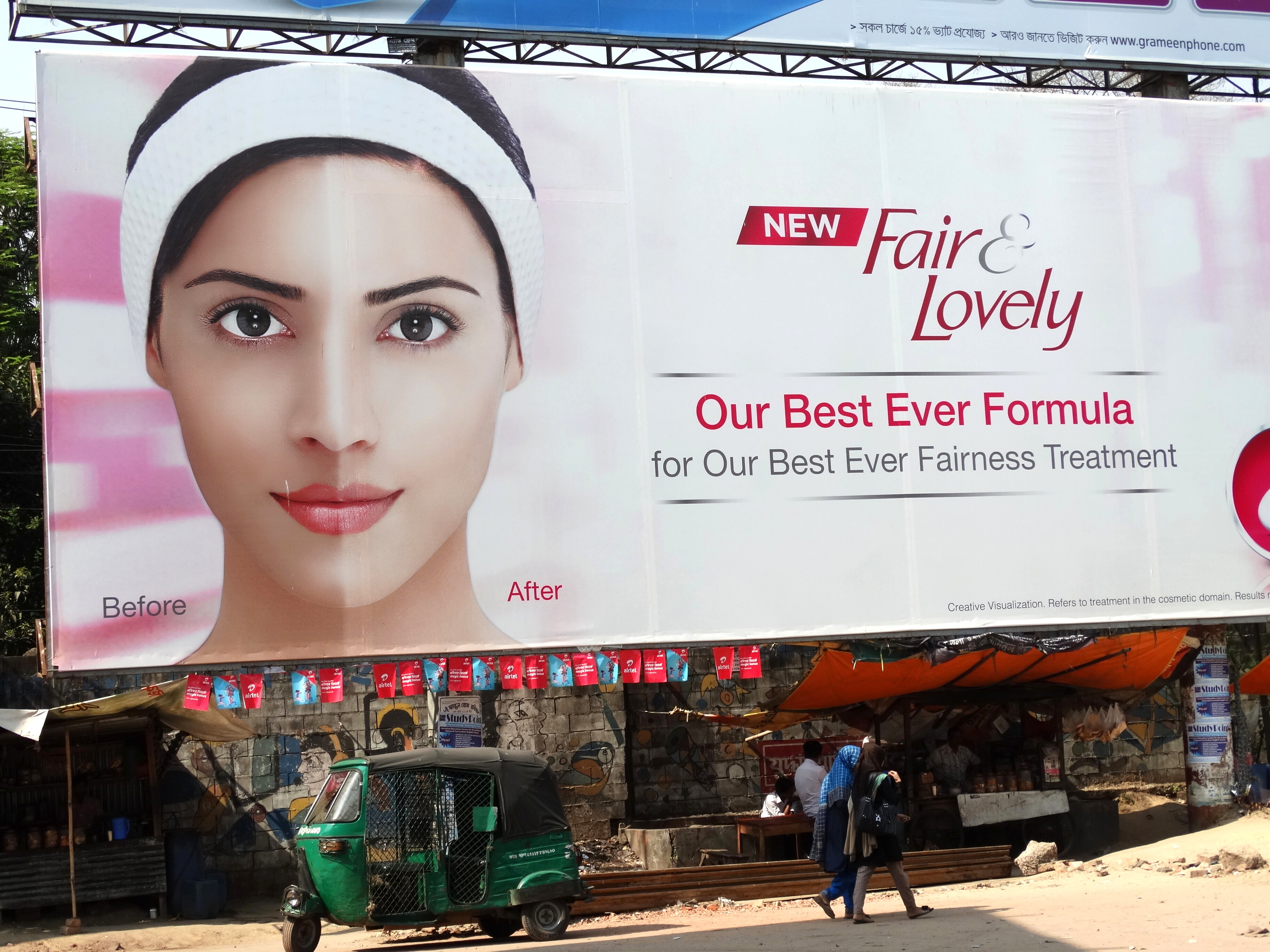
Examining Skin Color Bias in India and Cambodia
By Meghana Mysore
[divider]
[dropcap]I[/dropcap]n the back of my mother’s cupboard at home, there is a dusty tube of “Fair and Lovely” skin cream, hidden beneath everyday moisturizers and toiletries. Once, I asked her what it was, and she told me that it was a cream her mother used to give her in India to lighten her skin. My mother’s words affected me deeply, for I did not realize the extent to which the correlation between beauty and light skin was ingrained in Indian culture.
In India, the commonly held perception is that the lighter your skin, the more beautiful you are. In her youth, my mother often saw matrimonial ads in papers seeking fair-skinned women, and shelves of skin-bleaching creams like “Fair and Lovely.”
The strange correlation between light skin and the perception of beauty in Indian culture has been internalized for decades and is now difficult to erase. The statistics speak for themselves: the Indian fairness cream industry is worth around $450 million, and in South Asia, more skin lightening creams are sold than bottles of Coca Cola.
Launched in 1975, “Fair and Lovely” has been the global leading fairness cream for decades now. On the cream’s website, the company proclaims to “provide hope to millions of women around the world, especially in Asia, who desire fairer and even-toned skin,” changing how these women “feel about themselves” and how “the world see[s] them.”
“This bias can be linked to class, caste bias and colonial legacy,” said Professor Inderpal Grewal, who teaches in the Women’s, Gender, and Sexuality Studies department at Yale. “Generally fairness is about a life of leisure and not having to work in the fields or out in the sun, where you get darker,” she continued, “so it’s about class as well as caste. It is a form of racism that is now linked to the North Indian claims of Aryan-ness, as opposed to other histories of the subcontinent linking population movement from the South and from other part of Asia and Africa.” She explained that this results in racist ideas and discrimination against Dalits (members of the lowest caste in India), African students, and darker-skinned tourists, for example.
Moreover, the association between light skin and beauty is not a phenomenon unique to India. My sister, a current Peace Corps volunteer in Kampong Thom, Cambodia, has seen similarly warped standards of beauty in her host family. Routinely, her host mother points to her dark skin and tells her that if she had whiter skin, she would be beautiful. For a while, my sister’s students did not believe she was actually American because of the brown color of her skin. Some days, people walking past my sister on the streets blatantly tell her that they think she is ugly. They ask her: why isn’t your skin at least as light as that of Bollywood movie stars?
“What has caused me a great deal of emotional pain here is that I don’t feel like I have a right to be American because of my skin color,” my sister wrote on her Diversity Committee application a couple months ago. The Diversity Committee is one of the Peace Corps volunteer committees working towards social equality at different host sites. She explains that, at first, the experience of being told every day that she was ugly and not a “true” American because of her skin color was disturbing and disconcerting. Now, though, she is used to it; it is, she believes, an unfortunately natural part of her experience as a non-white Peace Corps volunteer. Still, she hopes that she can educate her students that Americans are white, brown, black and every shade in between.
It is not easy to dismantle the class and caste bias that originated long ago these parts of the world, but perhaps my sister’s struggles are worthwhile. If she can teach even one girl that beauty transcends skin color, that nationality is not defined by one’s race, she will have accomplished what she hoped to. Maybe, one day, that girl would look in the mirror and see the beauty in her face—and, more importantly, in her mind—and would pass the message along.
[hr]
Meghana Mysore is a freshman in Davenport College. Contact her at meghana.mysore@yale.edu.